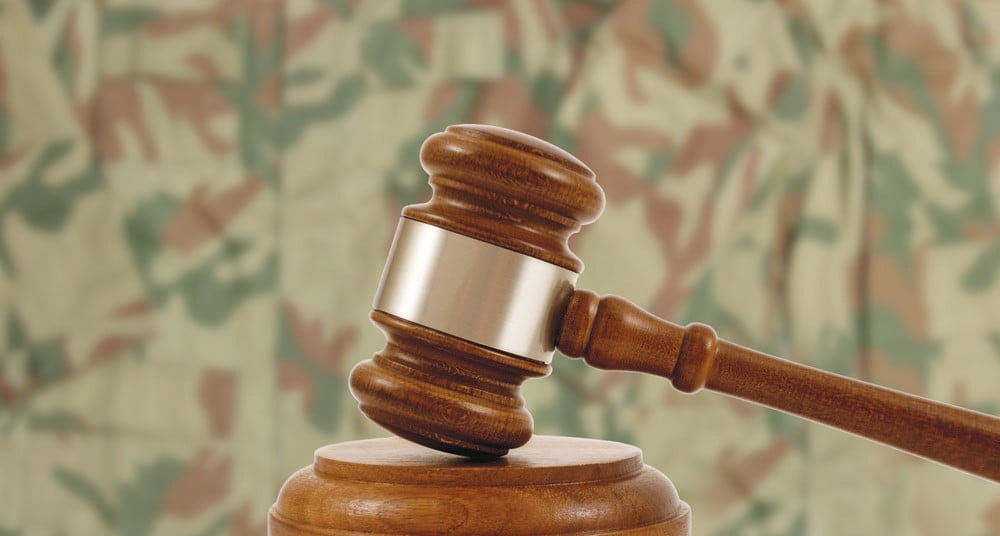
As the military courts get extention for another two years, analysts want to examine what all they achieved in the last two years

As the government and the Pakistan People’s Party (PPP) persistently failed to reach a consensus about the two-year extension for military courts, three terrorism convicts, sentenced to death by a military court, were hanged in Sahiwal last Wednesday. They were accused of attacking the armed forces and members of law enforcement agencies.
Since the federal government was determined to tackle the issue, it repeatedly attempted to win over the PPP which seemed on a war path with the ruling PML-N. A marathon of meetings was held to reach a consensus about reviving the military courts but to no avail. On March 15, a fifth meeting was held to discuss the draft bill on an extension in military courts, before all parties reached the consensus to extend the military courts for another two years.
The PPP that enjoys a majority in the Senate had stated that it will only support the idea if its "nine conditions" were met. These included that the military courts shall be presided over by one sessions judge or additional sessions judge with a military officer, and that this judge will be nominated by the chief justice of Pakistan. Further, the accused would be produced within 24 hours before the concerned court, would be supplied with grounds of arrest within 24 hours and would have the right to engage a counsel of their choice.
Last week, the PPP leaders refused to attend the meeting of parliamentary leaders convened at office of the National Assembly speaker Ayaz Sadiq.
"There has been no progress and we have not come to a consensus regarding the draft bill yet. We believe there is no chance we will meet again with the government to negotiate our proposals," Senator Aitzaz Ahsan who was heading a four-member PPP team had told the media after the most recent meeting.
After the recent decision, both Aitzaz Ahsan and Chairman Senate Raza Rabbani have regretted the extension granted in strongest words.
The PPP was not the only party opposing the military courts. Almost all opposition political parties, including Muttahida Qaumi Movement, Pakistan Tehreek-e-Insaf (PTI) and the Jamiat Ulema-e-Islam Fazal (JUI-F) had opposed them on different grounds.
Nafisa Shah, a Member of National Assembly (MNA) representing the PPP, said that "military courts are haunting the spirit of the Constitution so if they are instituted, it should be done with maximum safeguards," the way her party has proposed. "Military courts’ formation should include the right to fair trial and judicial review."
Bushra Gohar of Awami National Party said that military courts are a band-aid solution to a much deeper problem. "There are no quick fixes for countering the scourge of extremism and terrorism -- a strong political will is needed to address root causes and take measures at multiple levels. In a highly militarised society, one can only expect shortsighted militarised solutions to complex challenges."
However, Gohar had added that even the short term solution that the military courts offer fails to work as an effective deterrence. "Instead of giving yet another extension, we need to strengthen our justice system which is on a verge of collapse. A parallel setup will only weaken it further. Nothing short of a change in the self-destructive foreign and security policies is needed to counter the existential threats of terrorism and extremism. The parliament needs to critically review the need for yet another extension."
The second tier leadership of the PML-N viewed the matter in a different way. Leila Khan, a PML-N MNA, said that difficult times require difficult actions. "Military courts have previously proven to be the correct option on tackling the issue of terrorism and hence in times like this we need to avail every result-oriented option we have."
PTI, another party in opposition party, had raised an important question: How long will the government use the military as a crutch? "The government’s efforts in reviving the military courts deflect attention from the real issues which include failure of the NAP and reforms which were necessary to strengthen the criminal justice system, in the past two years," said Naeemul Haq, a senior PTI leader. "We conditionally support the military courts with two years’ extension. It should be an interim period -- meanwhile a firm and final action needs to be taken against the terrorists with the help of our army for speedy justice."
Analysts, however, are divided on the military courts issue. Some say that to try civilians in military courts is an anathema for democracy. Others say if these courts must be revived, they agreed with the PPP’s proposal that a ‘challan’ should be produced within 24 hours, a civil judge should sit alongside the military judge during the hearing, the accused should have a legal assistant of their choice and finally that the military courts ruling should be open to review by the country’s top court.
Muhammad Ziauddin, an Islamabad-based senior journalist, said that in order to understand the utility of military courts "we need to examine what they have accomplished in the last two years, if anything. The threat of death is meaningless to people who are already willing to give up their lives in suicide bombings."
Also, the entire complex issue should be a great concern for superior courts because the institution of military courts is an indictment of Pakistan’s judiciary which "is no more under the thumb of the executive and financially it is not only well off but relatively free. Hence, courts should be far more worried about this issue than politicians," said Ziauddin.
He suggested that instead of setting up military courts, "in order to improve the system, more efficient Anti-Terrrorism courts could be set up."
This is a revised and updated version of the article that appeared in the print under the title "Back to the Drawing Board"